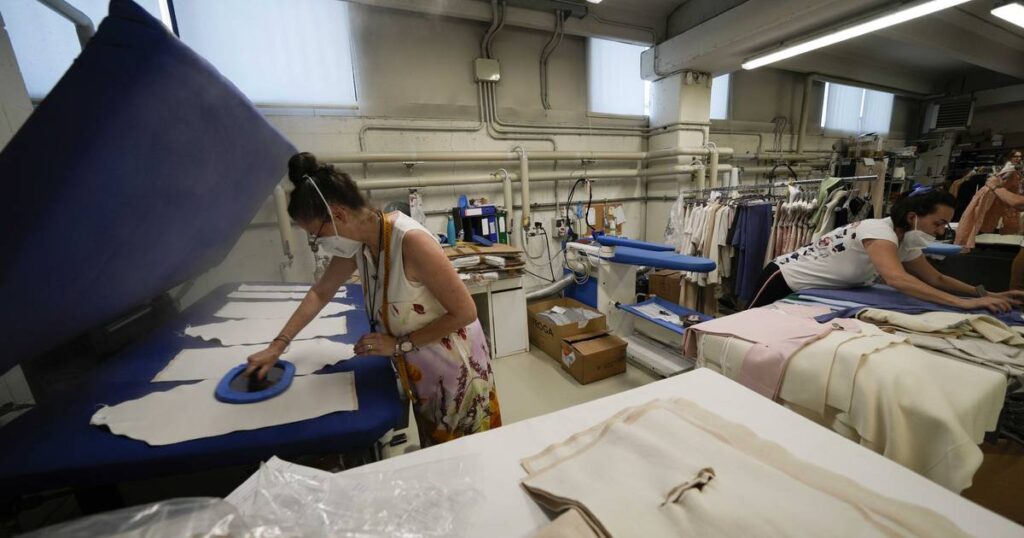![]()
Recently, a longtime friend who is only a few years younger than me called me for advice. I'm always flattered when someone asks for my opinion. It makes me feel smart and useful, which is more uplifting than my cranky, opinionated personality would suggest.
But rather than an in-depth examination of public policy, finances, taxes, politics or journalism, his questions elicited nostalgia, reminiscing about my youth polishing whitewall tires, the joy of replacing a simple car key at low cost before expensive programmable key fobs became commonplace, and the feeling of accomplishment of installing a new ribbon on a typewriter without getting ink all over my fingers.
He asked, “What is starch?”
A friend of mine was attending a wedding and needed to wear a dress shirt, something unusual for this guy. He took it to the dry cleaners to have it washed and ironed, and the cleaner asked him the centuries-old question: “Starched or unstarched?”
My friend had no idea, but guessed it was unstarched, and was confused by the question so he called me to ask. I reassured him he was right. I probably explained starched collars in more detail than he wanted to know, but that's my fault. My brain works like a Google search; I just regurgitate what I know, instead of considering that all they need is a simple “yes” or “no.”
I consider myself somewhat of an expert when it comes to ironing shirts. I'm no Google expert. When I was in high school, I complained about my mom's ironing skills, and she threw the shirt back at me and said, “Iron it yourself,” and I've been ironing my own shirts for the last 60 years. Lesson learned.
A few days after my friend's question, while I was still basking in the nostalgia of my first steam iron, I read a news article that emphatically confirmed my belief that I live in a different time. The Wall Street Journal cited a report that said the average age of MSNBC News cable viewers is 70. Those who watch Fox News on cable are 69, CNN viewers 67, and ABC 66. Pre-Medicare viewers flock to CBS, where the average viewer is a spry 64.
And if you think that older people's love affair with TV only applies to news programming, you're as wrong as someone who gets their shirt smeared with starch. According to Nielsen survey data, the average age of an MTV cable viewer is 51. The average age of an MTV viewer is almost 10 years older than the channel itself. If this trend continues, MTV should start soliciting AARP and Medicare supplemental insurance ads to match its viewers.
The data reaffirms what we already know about young people's preferences: Cable TV is the past and streaming is the future. Similarly, print newspapers are struggling while social media is thriving. Phone conversations are declining while texting and messaging are on the rise.
Throwing out the old and embracing the new seems like an inherently irreversible act.
This is not meant to insult older people in any way. We are vital members of our communities. Older people are more likely to volunteer, vote, and eat their vegetables than younger people. This is simply acknowledging change. Older people have memories and years of experience, and younger people create their own memories and experiences through a different medium: an Apple or Android, not a wired phone on a desk.
But until they know all the answers, feel free to call me anytime, it will make you feel useful, and remember: starch belongs on your dinner plate, not on your shirt collar.
Larry Persily is a longtime Alaska journalist who has worked in federal, state and local public policy in Alaska and Washington, D.C. He lives in Anchorage and is publisher of the Wrangell Sentinel weekly newspaper.
Opinions expressed here are those of the author and are not necessarily endorsed by the Anchorage Daily News, which welcomes a wide range of viewpoints. To submit an article for consideration, email commentary(at)adn.com. Submissions of under 200 words may be sent to letters@adn.com or click here to submit from any web browser. Read our complete guidelines for letters and commentary here.



